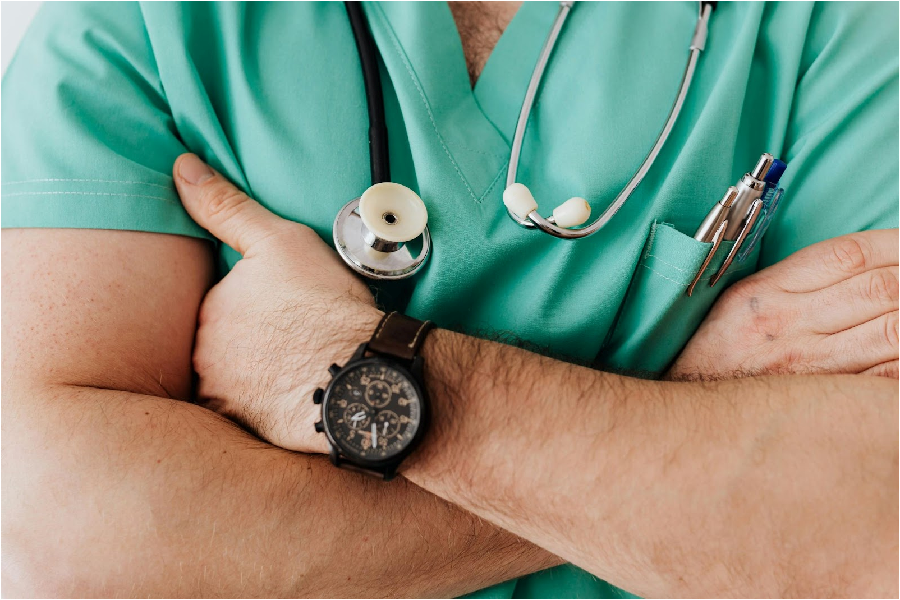The integration of mobile technology in healthcare, known as Health, continues transforming the medical landscape. The focus on mobile app development healthcare has led to the creation of applications that improve patient outcomes, enhance the efficiency of healthcare providers, and increase the accessibility of healthcare services globally (meet the Topflight actual entry). This article explores the prevailing trends in healthcare mobile apps development, highlighting innovations shaping medical care’s future.
A Few Words from the Medical Applications History
The development of medical applications has progressed significantly over the past few decades, driven by technological advances and an increasing focus on patient-centered care. The origins of medical apps trace back to simple clinical calculators and documentation tools in the late 1990s and early 2000s, designed to assist healthcare professionals with patient management. As smartphones became ubiquitous, the first wave of mobile medical applications emerged, providing healthcare professionals and patients with monitoring, diagnosis, and health management tools.
By the 2010s, the proliferation of more advanced mobile technologies and the introduction of tablets brought a surge in app sophistication. Developers began incorporating data analytics, cloud storage, and real-time communication capabilities, enabling more comprehensive health monitoring and telemedicine solutions. This period also saw the integration of artificial intelligence and machine learning into medical apps, enhancing their ability to provide practitioners with personalized patient care and decision-support systems.
Today, medical applications cover a vast spectrum of functionalities, including telehealth, electronic health records, patient education, and mental health support, reflecting their integral role in modern healthcare. Regulatory bodies such as the FDA in the United States have also started to recognize and formalize the approval process for medical apps. This has helped standardize their development and ensure their safety and efficacy. This historical progression underscores the dynamic nature of medical app development and its critical impact on the evolution of healthcare delivery systems.
Contemporary Healthcare Apps Trends
Telemedicine and Remote Monitoring
One of the most significant trends in healthcare mobile apps development is the rise of telemedicine. These applications allow patients to consult with healthcare professionals via video calls, messaging, and real-time data sharing. This technology is particularly vital in rural or underserved areas with limited access to doctors and specialists.
Remote monitoring apps are another critical aspect of modern healthcare mobile apps. These applications allow healthcare providers to remotely monitor patients’ health data using devices that measure vital signs such as blood pressure, heart rate, and glucose levels. The data collected can be automatically sent to healthcare providers, who can then make informed decisions about patient care without needing a physical visit.
Enhanced Diagnostic Tools
The development of mobile applications that assist in diagnosis has seen considerable growth. These apps use AI and machine learning algorithms to analyze medical data, such as MRI images or CT scans, to help diagnose conditions more quickly and accurately. For instance, apps designed for dermatology can analyze skin lesions from photographs to pre-assess for conditions like melanoma.
List of technologies used in enhanced diagnostic tools:
- Artificial Intelligence (AI)
- Machine Learning (ML)
- Computer Vision
- Big Data Analytics
Developers looking into how to build a healthcare app that includes diagnostic capabilities must ensure they are incorporating these technologies to stay at the forefront of the healthcare industry.
Personal Health Records
Personal health record (PHR) apps represent a rapidly growing sector in healthcare mobile apps development. These apps allow patients to maintain their health records in a digital format that is easily accessible. More importantly, PHR apps ensure patients have control over their medical data and can share it with various healthcare providers to improve care continuity and prevent redundant diagnostics.
Developers aiming to create a medical app with PHR capabilities must focus on data interoperability standards such as HL7 or FHIR to ensure their apps can communicate effectively with other healthcare systems and devices.
Mental Health Apps
With rising awareness of mental health issues, more focus has been on building health apps that support mental well-being. These apps offer resources for stress management, anxiety, depression, and more, providing tools such as guided meditation, mood tracking, and cognitive behavioral therapy (CBT) exercises.
Developers involved in building healthcare applications that target mental health need to consider user engagement strategies and the sensitivity of the data being handled. Incorporating feedback mechanisms and ensuring that content is provided or vetted by qualified professionals are essential steps in this process.
Regulatory Compliance and Security
Regulatory compliance remains a critical concern as healthcare mobile app development evolves. To protect patient information, apps must comply with health regulations and standards such as HIPAA in the U.S. or GDPR in Europe. Security features like data encryption, secure authentication methods, and regular security audits are mandatory to protect sensitive health data and build user trust.

Conclusion
The healthcare app industry is at the cusp of a technological revolution, with mobile applications leading the charge. From remote patient monitoring and telemedicine to advanced diagnostic tools and personal health records, healthcare mobile apps development is making healthcare more accessible, efficient, and patient-centered. As the industry grows, developers looking to build healthcare applications must stay informed about the latest trends, technologies, and regulatory requirements. The future of healthcare is digital, and mobile apps are set to play a pivotal part in shaping this future.
Author:
Priya Raeesa
Priya is an experienced mobile app developer with a flair for simplifying complex concepts. Her articles aim to demystify the app development world and empower others to create innovative mobile solutions.



